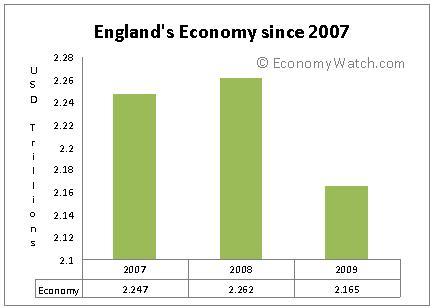Barclays Capital and the HP Autonomy Matter
May 7, 2013
Some of the UK newspapers pop up boxes wanting me to subscribe. Nice try, but I don’t follow too much of the England, Ireland, Scotland action. As fascinating as the Cotswolds may be, most of the business news from England is a bit depressing and irrelevant to life here in Harrod’s Creek. My subscribing to the major UK dailies online is simply not yet compelling. But once in a while an information truffle comes to my attention.

Economy Watch presented this somewhat troubling picture of England’s economy. For a discussion of the data, please, navigate to http://www.economywatch.com/world_economy/england/.
I did notice in one of my Overflights this story, however: “Barclays Capital Accused in Autonomy Lawsuit.” (If the link goes bad, you will have to hunt around for the story or look at a hard copy of the paper in a library.)
The main idea is that HP spent $11 billion for Autonomy. A short time later, HP wrote off about $9 billion, making the deal for Autonomy apparently worth $2 billion. Here’s was the Telegraph said about a shareholder lawsuit which named the top brass of HP among others as allegedly responsible for the misstep:
“HP’s financial advisor, Barclays, was conflicted in advising the board while simultaneously underwriting the financing of the deal,” the lawsuit states. “Compounding the problem, after the acquisition closed, HP’s fiduciaries misrepresented the facts to conceal their own failings,” it [the shareholder lawsuit] added.
What I find interesting is that the difference between what HP paid and at what the write down pegs the “value” is still a hefty number for a search and content processing company. Autonomy was the pre-eminent search vendor, and it did a good job of surviving and growing as other vendors failed. Consider that Autonomy survived and reach nearly $1 billion in revenues as Convera, Entopia, Delphes, Siderean and others disappeared.
My view is that Autonomy’s success continues to give venture firms and entrepreneurs hope that an enterprise search, business intelligence, or content analytics firm can deliver hundreds of millions in revenue. Since the roll up wave of the high profile search vendors has come and gone, the companies which want to fill the void look at the Autonomy deal as a benchmark.
What I find interesting is that like the Microsoft purchase of Fast Search & Transfer, the big European deals have been dogged by by questions about the financial underpinnings of the company. The smaller deals—Dassault”s purchase of Exalead, IBM’s deal for Vivisimo, Lexmark’s one-two deals for Brainware and ISYS Search Software, and Oracle’s acquisition of Endeca—have been largely without excitement. The search “technology” has morphed into functions which enhance the owners’ enterprise systems. I would note that most of these acquired search technologies were aging at the time of the buyouts in my opinion. ISYS, I believe, dates from the late 1980s.
Are some companies unable to manage, value, and leverage their search acquisitions? I was reminded yesterday that 20 somethings and slick MBAs have figured out how to make money from search. I listened, of courser. But in the back of my mind, it seems that most of the still standing search vendors are in the business of raising money. Making sales and growing a business, for some, is a secondary activity.
Which enterprise search vendors are demonstrating organic growth and generating sufficient cash to support and enhance their products? When I think about the mad rush to convert search technology into something to tackle big data or mine nuggets in real time data, I wonder if a “willing suspension of disbelief” is the defining characteristic of those who pump millions upon millions into search and content processing.
Technology is enhanced by marketing. Smart money seems to believe the public relations. The actual financial performance drifts to a secondary role.
Who’s affected? According to the shareholders, executives and bankers. Here’s the phrase in the estimable Telegraph’s lingo: “disastrous purchase of Autonomy.”
Disastrous is a colorful notion when applied to enterprise search and its related disciplines, isn’t it?
Stephen E Arnold, May 7, 2013
Sponsored by Augmentext


